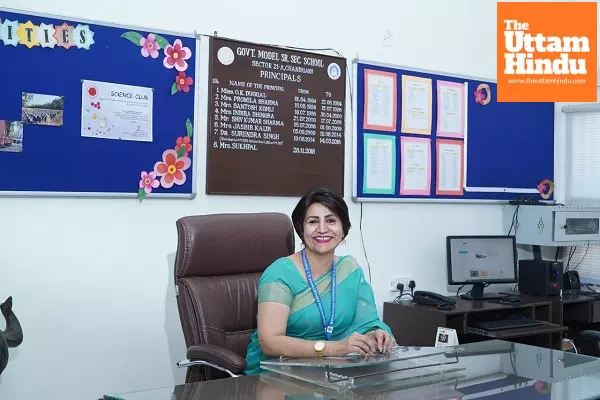Nano-Satellites Empowering Classrooms: How India’s Youth Is Touching Space, One Innovation at a Time

Chandigarh(The Uttam Hindu): India is steadily emerging as a leader in low-cost space innovation, thanks to the increasing adoption of nano-satellite technology. With indigenous capabilities and strong educational collaborations, the country is paving the way for a new era in scientific and technological advancement.
Backed by AI-based control systems, these nano-satellites are equipped with autonomous decision-making capabilities—marking a significant shift towards smarter and more efficient satellite missions. What's even more remarkable is the use of cost-effective design and development techniques, making these innovations accessible even with limited resources.
ISRO has played a pivotal role in this transformation, not only by launching its own nano-satellites but also by nurturing student-led space projects. Milestone missions such as STUDSAT, Jugnu, Pratham, and INSPIRESat-1 are shining examples of how teacher-student collaborations are contributing to India’s space journey. Recently, multiple Indian universities have successfully launched indigenously developed satellites, setting new benchmarks in academic innovation.
What once seemed limited to high-tech labs is now a reality in classrooms. Students from schools and colleges are engaging directly with satellite systems—learning rocket science, programming, circuit design, and communication technologies firsthand. This hands-on exposure is fostering scientific curiosity and strengthening India’s STEM education ecosystem.
According to experts, nano-satellites hold vast potential in the coming years for rural development, agricultural monitoring, disaster management, and climate change studies. As these applications grow, India is expected to play a leading role in shaping the global space-tech landscape.
"The involvement of students in live satellite projects is not just educational—it’s transformational. It inspires innovation, boosts confidence, and prepares the next generation for real-world scientific challenges,” said Sukhpal, Principal, Government Senior Secondary School, Sector-21, Chandigarh.
India’s nano-satellite success is more than a scientific breakthrough—it's a powerful testament to what innovation, collaboration, and education can achieve when aligned with national ambition.
- Tags
- #ISRO
